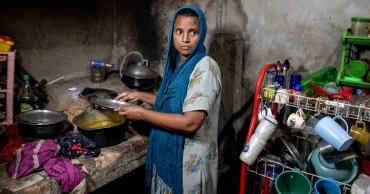UN trade facilitation agency
Developing countries face impossible trade-off on debt: UN
Spiralling debt in low and middle-income countries has compromised their chances of sustainable development, the UN trade facilitation agency has said.
Rebeca Grynspan, the head of UNCTAD, said between 70 and 85 percent of the debt that emerging and low-income countries are responsible for is in a foreign currency.
This has left them highly vulnerable to the kind of large currency shocks that hit public spending – precisely at a time when populations need financial support from their governments.
Speaking at the 13th UNCTAD Debt Management Conference in Geneva recently, Rebeca said so far this year, at least 88 countries have seen their currencies depreciate against the powerful US dollar, which is still the reserve currency of choice for many in times of global economic stress.
And in 31 of these countries, their currencies have dropped by more than 10 percent.
This has had a hugely negative impact on many African nations, where the UNCTAD chief noted that currency depreciations have increased the cost of debt repayments by the equivalent of public health spending in the continent.
Read more: UN reminds Bangladesh of commitments to free expression, peaceful assembly
A wave of global crises has led many developing countries to take on more debt to help citizens cope with the fallout.
Government debt levels as a share of GDP increased in over 100 developing countries between 2019 and 2021, said UNCTAD. Excluding China, this increase is estimated at $2 trillion.
"This has not happened because of the bad behaviour of one country. This has happened because of systemic shocks that have hit many countries at the same time," Rebeca said.
With interest rates rising sharply, the debt crisis is putting enormous strain on public finances, especially in developing countries that need to invest in education, health care, their economies and adapting to climate change.
As debt burdens rise, developing country governments end up in a vicious circle, unable to invest in achieving Sustainable Development Goals (SDGs) and grow their economies, making it even harder to pay their debts.
If a country defaults, the terms of debt restructuring are usually set by groups of creditors competing to get the best terms, rather than giving priority to economic and developmental concerns, or how sustainable it is to keep up with payments.
"To resolve these issues equitably, this needs to be done in a manner that maintains the debtor countries' ability to grow and meet its current and future debt obligations, while also fulfilling its commitments to the SDGs," Sri Lankan President Ranil Wickremesinghe said in a statement delivered by the country's permanent representative in Geneva Ambassador Gothami Silva.
Read more: ‘Friendship to all, malice towards none’: Bangabandhu's historic quote incorporated in UN resolution
UNCTAD said if the median increase in rated sovereign debts since 2019 were fully reflected in interest payments, then governments would pay an additional $1.1 trillion on the global debt stock in 2023, estimates show.
This amount is almost four times the estimated annual investment of $250 billion required for climate adaptation and mitigation in developing countries, according to a report from the UN agency.
3 years ago

